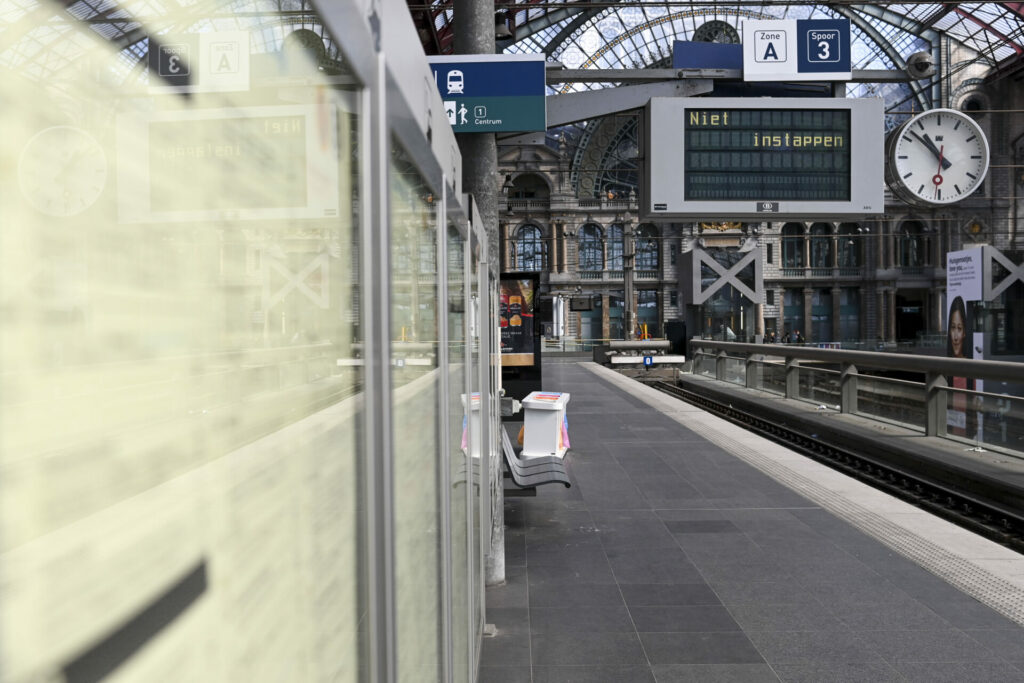For the first time in the history of the Belgian railways, a plan for the next 10 years has been set out giving SNCB CEO Sohpie Dutordoir hope for a bright future for trains in Belgium, despite the current three-day strike.
Amid general dissatisfaction from passengers about the increase in delayed or cancelled trains and from staff about their wages and working conditions, Dutordoir said on the VRT television channel on Tuesday that a new management agreement will soon be concluded – a key demand of the strikers.
"A train that doesn't run on time is not a good train. You won't hear me say I am satisfied today," she said, promising improvement via a 10% increase in trains and 30% more passengers in the next few years.
Over the past year, overall punctuality at SNCB has been decreasing and dropped to a new low of 85% in October (compared to 90% the same month last year), show figures from SNCB. Furthermore, train cancellations have risen sharply this year and are the highest in five years.
'Not a pretty picture'
"It is a feasible, realistic and ambitious plan. But to achieve it, we will have to temper ambitions for the next two years," Dutodoir said. Some investments initially planned for 2024 and 2025 will be postponed to pay SNCB's electricity bill and wage costs.
In the last few months, Dutordoir faced the biggest social unrest she has experienced since being appointed CEO. A three-day strike (which started on Tuesday and will continue until Thursday) is currently causing disruption on the railways, but it is only the latest in a long line of strikes and union actions since this summer.
"I regret the strikes, it's not a pretty picture for the 850,000 passengers who returned to take trains after Covid-19. This is mainly a signal to the government; the unions, Infrabel and SNCB agree on most issues. Yes, resources should be more in line with ambitions and there should finally be a new management agreement."
Still, she acknowledged that the strikes are also a signal to her, as an employer. "My employees want perspective to be offered to the company, the railway network and the country. There is too much pressure on staff."
Related News
- Mobility Minister Gilkinet apologises for three-day train strikes this week
- Half of trains to run on Wednesday and Thursday
- Consecutive railway strikes to disrupt train traffic this week
However, the SNCB and Federal Mobility Minister Georges Gilkinet have found an agreement that offers perspective to the company, the passengers and the country. "This is the first time in the Belgian history of the railways that Infrabel and SNCB have put a plan on the table together, completely starting from the perspective of the customer and for a ten-year period," she said.
While Gilkinet has harboured grand ambitions for Belgium's railway system since his appointment as mobility minister in 2020, these are not in line with the resources given, argue Dutordoir and the striking unions.
"We have now concluded an agreement that we are going to defend together. Minister Gilkinet has promised to make the final decision for a new management agreement in the government before Christmas."

